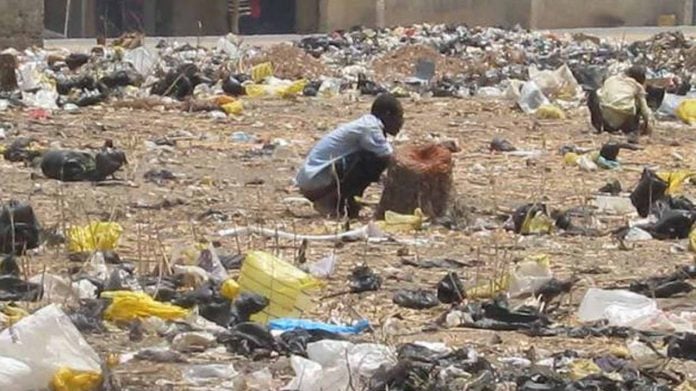A fresh warning from the World Bank has brought global attention to a deepening sanitation crisis, with far-reaching implications for health, economies, and the environment. According to the Bank’s recent findings, almost 40% of the world’s population still lacks access to safe sanitation—a statistic with particular consequences for developing regions including Nigeria, Ghana, and other African countries.
For many Africans, inadequate sanitation is not just a matter of inconvenience; it is costing the continent an estimated $200 billion every year in lost economic productivity, as highlighted in the World Bank’s newly released report, The Global Sanitation Crisis: Pathways for Urgent Action. Notably, the Bank asserts that improved investment in clean water and sanitation infrastructure could boost Africa’s gross domestic product by as much as 5%, opening paths to healthier communities and stronger economies.
Sanitation and Public Health: The Unseen Link
Unsafe sanitation continues to provoke widespread issues across Africa. The report, referencing United Nations estimates, noted that around 3.5 billion people worldwide lack access to safe toilets and effective waste management systems. The consequences are often deadly, contributing to outbreaks of diseases such as cholera, diarrhoea, and typhoid. In Nigeria and other West African countries, such outbreaks disproportionately affect children under five—the most vulnerable in society.
Dr. Ngozi Okonjo-Iweala, an economist and former Nigerian finance minister, recently commented on the urgency: “Sanitation is a silent emergency. For every family affected, particularly those in informal settlements, the threat of illness or poor educational outcomes can last for generations.”
The Economic Toll on Africa
Africa’s sanitation challenge is amplified by rapid urbanisation, persistent poverty, and struggling infrastructure. In cities like Lagos, Accra, and Abidjan, countless households reside in areas where sewage systems do not reach, and draining waste often contaminates water supplies. The World Bank estimates the continent loses up to $200 billion each year in foregone economic activity, much of it due to lower worker productivity, increased healthcare costs, and students missing school due to waterborne diseases.
A consultant in environmental health based in Lagos, Mrs. Bisi Adah, emphasised the ripple effects on daily life: “Poor sanitation means children frequently fall sick and miss classes, while adults lose valuable workdays. For local markets and businesses, even a temporary drop in attendance impacts incomes and food security.”
Links to the Sustainable Development Goals
The global sanitation crisis stands in the way of meeting the United Nations’ Sustainable Development Goal 6, which aims for universal access to clean water and sanitation by 2030. While several African countries have made improvements, progress remains slow, largely hampered by underfunding, weak regulatory environments, and the growing impact of climate change.
According to the World Bank, more resilient and adaptive sanitation systems are required. The report cautions that climate-related threats—such as flooding, drought, and rising sea levels—are placing extra burdens on already strained systems, particularly in low- and middle-income countries where one third of urban residents reportedly face a “triple burden” of poor sanitation, poverty, and climate vulnerability.
Turning Crisis into Opportunity
Despite these formidable challenges, the new report outlines practical steps for countries to make significant progress:
- Prioritising sanitation planning and investment at national and community levels
- Developing inclusive, climate-resilient infrastructure that can handle future shocks
- Encouraging innovation, collecting quality data, and building local technical capacity
- Incentivising public-private partnerships to unlock new resources
Dr. Salifou Ndiaye, a public health specialist in Dakar, argued for urgent synergy among stakeholders: “Our cities will not be safe or sustainable without effective sanitation. Government, business, and civil society must come together. Waiting is no longer an option.”
The Impact of Investment: A Closer Look
The World Bank notes that every US$1 invested in water and sanitation returns as much as US$7 in economic gains for Africa alone. Infrastructure improvements not only guard public health but also protect the environment by reducing pollution and creating the conditions for thriving, competitive economies. Robust sanitation systems can reportedly cut global methane emissions by up to 10% and improve the reliability of drinking water sources.
Notably, improved sanitation has educational benefits as well. The World Bank reports that in India, schools with sex-specific latrines saw improved enrollment among adolescent girls. In Brazil, the trend was linked to more students completing additional years of education. Similar positive effects could be seen in Nigeria, where “lack of toilets in schools leads to dropouts, especially among girls during adolescence,” explained a UNICEF adviser in Abuja.
Barriers to Progress
However, the journey toward universal sanitation is fraught with hurdles. Funding remains insufficient, especially for poorer municipalities. There are also cultural and social barriers, with stigma attached to conversations around sanitation in many communities. Additionally, weak enforcement of regulations can undermine gains.
“Many projects stall because of lack of political will, corruption, or inconsistent policies,” said Mr. Tunde Arinze, a water management advocate in Ibadan. “Communities should be empowered to participate in both planning and oversight. When people own the project, sustainability follows.”
Pathways Forward for Nigeria and West Africa
For Nigeria, Ghana, and neighbouring countries, experts point to several strategic actions:
- Increase national and local government funding for sanitation maintenance and infrastructure
- Engage community leaders to drive behaviour change and awareness
- Adopt citywide approaches that leave no settlement behind
- Support innovative private solutions, such as mobile toilets and waste-to-energy projects
- Strengthen collection of sanitation data to enable evidence-based policymaking
International development agencies and the private sector are increasingly willing to co-invest, provided there is accountability and transparency in project delivery.
The Call for Collaboration
Above all, the World Bank’s latest analysis stresses that time is of the essence. To safeguard the future of African cities—and by extension, the broader continent—governments, civil society, and the private sector must unite to deliver on sanitation solutions that are inclusive, climate-resilient, and sustainable.
“Achieving climate-resilient urban sanitation is possible—action must start now. Together, governments, service providers, businesses, and communities can build sanitation systems that protect people, prosperity, and our planet,” the report urged.
Nigerian Perspective: The Road Ahead
As sanitation gains renewed focus, it is evident that addressing this challenge is integral to building healthier, more prosperous communities across Nigeria and West Africa. The pathway requires persistent effort, rising above politics and coordinated leadership at all levels. Ordinary Nigerians, local governments, and innovators each have a role to play in ensuring clean water and sanitation are not luxuries, but universal rights.
What steps do you believe will make the biggest difference in Nigeria’s sanitation crisis? Share your thoughts below, and let your voice be heard in shaping the way forward!
Have a story, tip, or opinion on sanitation, health, or infrastructure to share? Your experiences and insights are vital to our community coverage! Email us at story@nowahalazone.com to get your story featured or to discuss story sales.
For support or general inquiries, reach out at support@nowahalazone.com. Stay connected—follow us on Facebook, X (Twitter), and Instagram for more community updates and exclusive insights!










